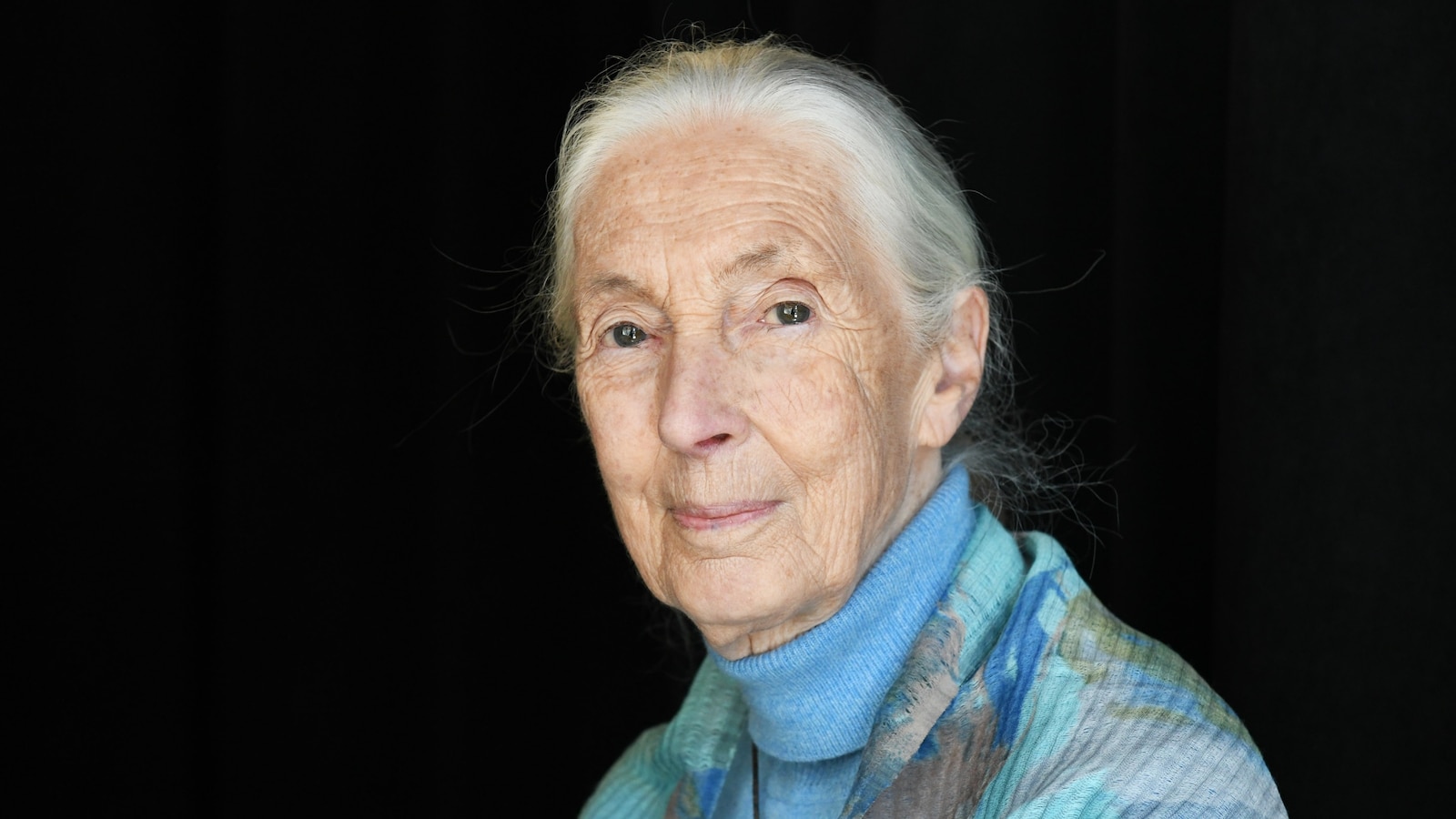Jane Goodall, famed primatologist and conservationist, dies at 91
Jane Goodall, the famed primatologist and conservationist, has died, according to the conservation institute she founded. She was 91 years old. “The Jane Goodall Institute has learned this morning, Wednesday, October 1, 2025, that Dr. Jane Goodall DBE, UN Messenger of Peace and Founder of the Jane Goodall Institute has passed away due to natural…
Jane Goodall, the famed primatologist and conservationist, has died, according to the conservation institute she founded. She was 91 years old.
“The Jane Goodall Institute has learned this morning, Wednesday, October 1, 2025, that Dr. Jane Goodall DBE, UN Messenger of Peace and Founder of the Jane Goodall Institute has passed away due to natural causes,” the institute said on social media. “She was in California as part of her speaking tour in the United States.”
The British primatologist’s “discoveries as an ethologist revolutionized science, and she was a tireless advocate for the protection and restoration of our natural world,” according to the institute.
Goodall was only 26 years old when she first entered Tanzania and began her important research on chimpanzees in the wild. Throughout her study of the species, Goodall proved that primates display an array of similar behaviors to humans, such as communicate, develop individual personalities and make and use their own tools.
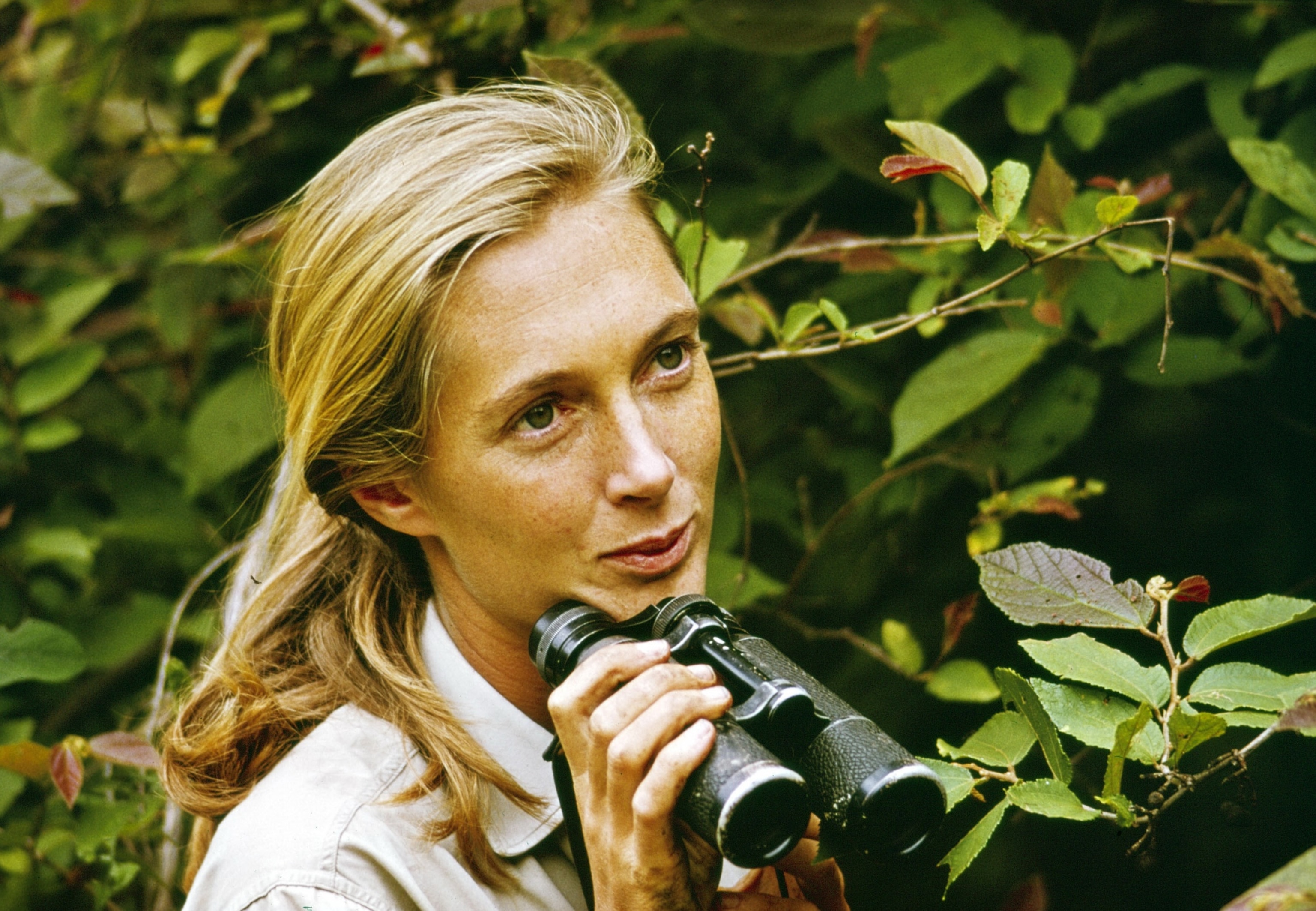
Jane Goodall appears in the television special “Miss Goodall and the World of Chimpanzees” originally broadcast on CBS, on Dec. 22, 1965, in Gombe Stream National Park, Tanzania.
CBS via Getty Images
Among the most surprising discoveries Goodall made when the research began was “how like us” the chimpanzees are, she told ABC News in 2020.
“Their behavior, with their gestures, kissing, embracing, holding hands and patting on the back,” she said. “…The fact that they can actually be violent and brutal and have a kind of war, but also loving an altruistic.
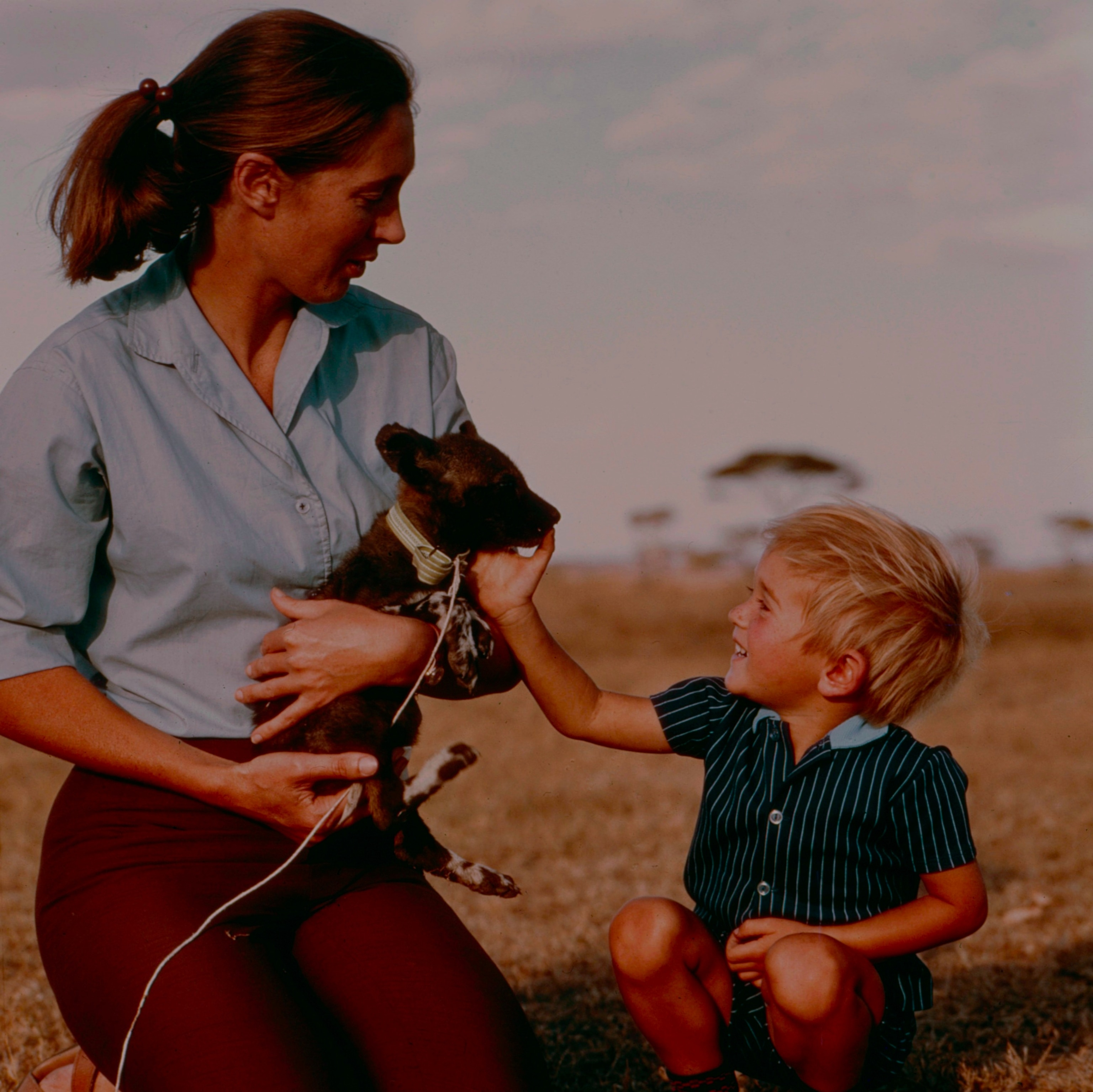
(L-R) Jane Goodall and her son Hugo Eric Louis van Lawick appearing on the ABC TV special ‘Jane Goodall and the World of Animal Behavior: The Lions of the Serengeti’ in Africa, 1976.
Walt Disney Television Photo Archive/ABC via Getty Images
That discovery is considered one of the achievements of twentieth-century scholarship, according to the Jane Goodall Institute.
Goodall’s love of animals began practically at birth, she told ABC News. As a child, she dreamed of traveling to Africa and living among the wildlife. When she was 10, she read the books “Doctor Dolittle” and “Tarzan,” and the inspiration changed the trajectory of her life.
The initial arrival into Gombe National Park proved to be challenging. The terrain was steep and mountainous, the forests were thick, and threats from buffalo and leopards lurked in the wilderness. But her lifelong ambition had finally been realized, and Goodall knew she was where she was meant to be.
“It was what I always dreamed of,” she told ABC News.
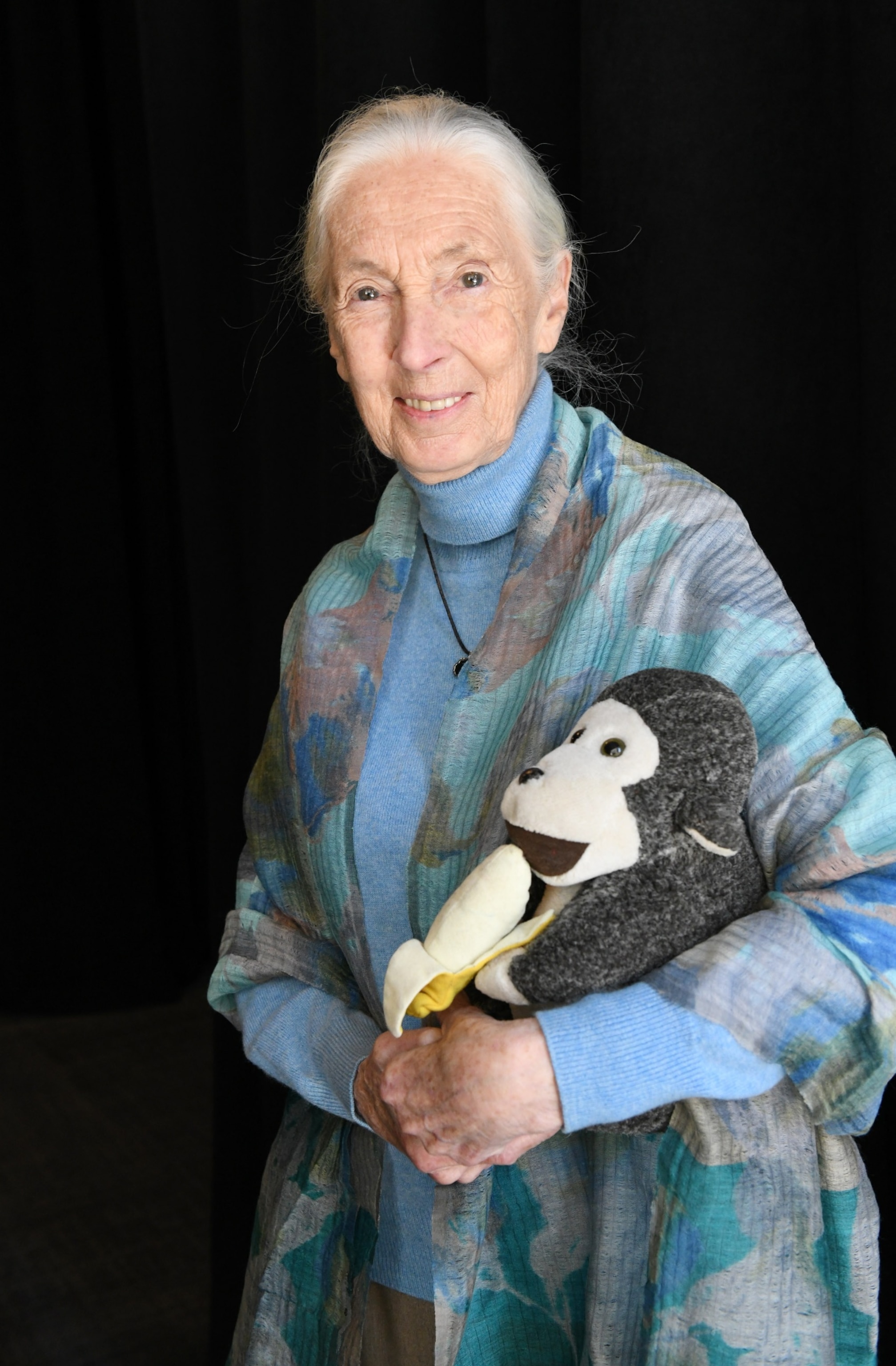
Dr. Jane Goodall attends the TIME 100 Summit 2019 on April 23, 2019 in New York City.
Craig Barritt/Getty Images
Goodall’s research garnered both scientific honors and mainstream fame, and she was credited with paving the way for a rise in women pursuing careers in STEM (science, technology, engineering and math) over the years. The number of women in STEM has increased from 7% to 26% in the six last decades, according to The Jane Goodall Institute, which cited census information from 1970 to 2011.
The anthropologist continued to lend her voice to environmental causes well into her 80s and 90s.
In 2019, Goodall acknowledged the climate crisis and the importance of mitigating further warming, telling ABC News that the planet is “imperiled.”
“We are definitely at a point where we need to make something happen,” she said. “We are imperiled. We have a window of time. I’m fairly sure we do. But, we’ve got to take action.”
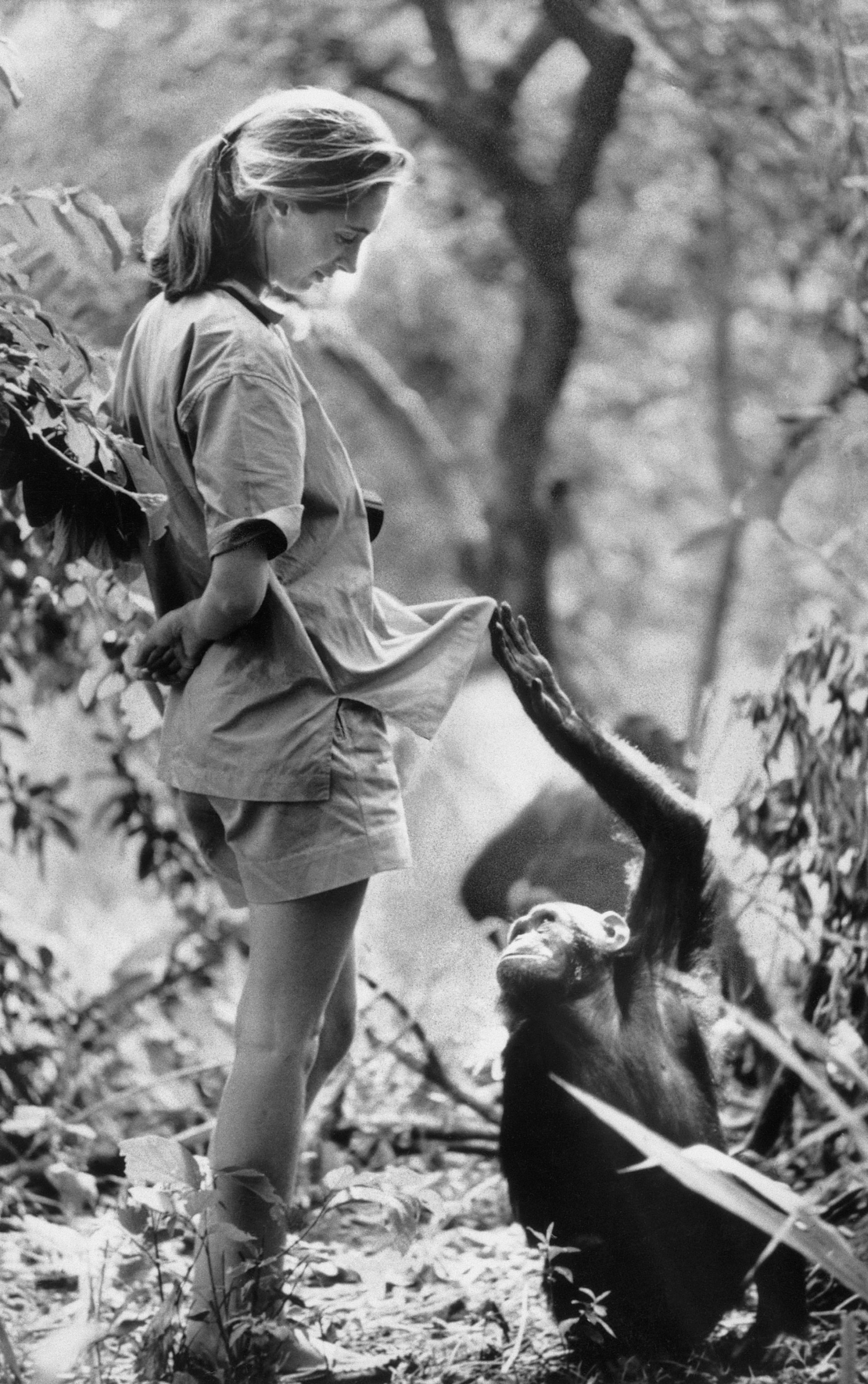
Jane Goodall with one of her research chimpanzees in the Gombe National Park in northern Tanzania.
Bettmann Archive/Getty Images
Goodall even partnered with Apple in 2022 to encourage customers to recycle their devices to reduce individual carbon footprint and cut down on unnecessary mineral mining around the world.
“Yes, people need to make money, but it is possible to make money without destroying the planet,” Goodall told ABC News at the time. “We’ve gone so far in destroying the planet that it’s shocking.”
Goodall emphasized in 2020 that there is still much to learn from “our closest-living relatives.”
“They’re still teaching us,” she said during the diamond jubilee anniversary of studying the species.
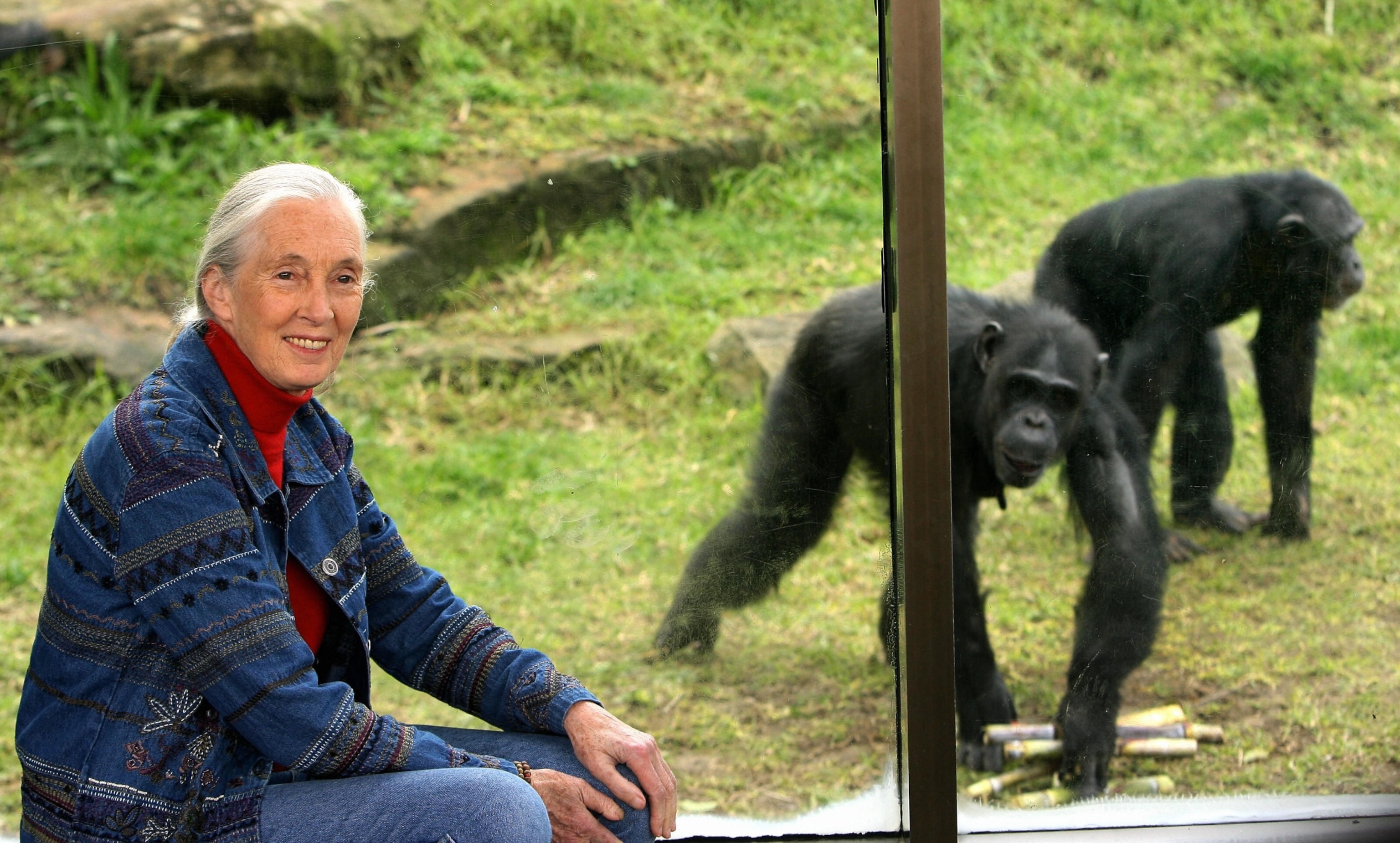
World-renowned primatologist and chimpanzee expert Dr. Jane Goodall visits Sydney’s Taronga Zoo, on July 14, 2006, to observe the extended family of 19 chimpanzees.
Greg Wood/AFP via Getty Images
During the COVID-19 pandemic, Goodall hypothesized that humans brought outbreak upon themselves, given that bats were the suspected driver of cross-species contraction of the virus.
“We have disrespected the natural world. We’ve disrespected animals, and we’ve been cutting down forests. Animals have been driven into closer contact with people. Animals have been hunted, killed and eaten. They’ve been trafficked,” she told ABC News in 2020. “So, animals of different species have been crowded together in the wild animal meat markets in Asia, bush meat markets in Africa, and this creates a fantastic environment for a virus or bacteria, virus in this case, to jump from an animal to a person.”
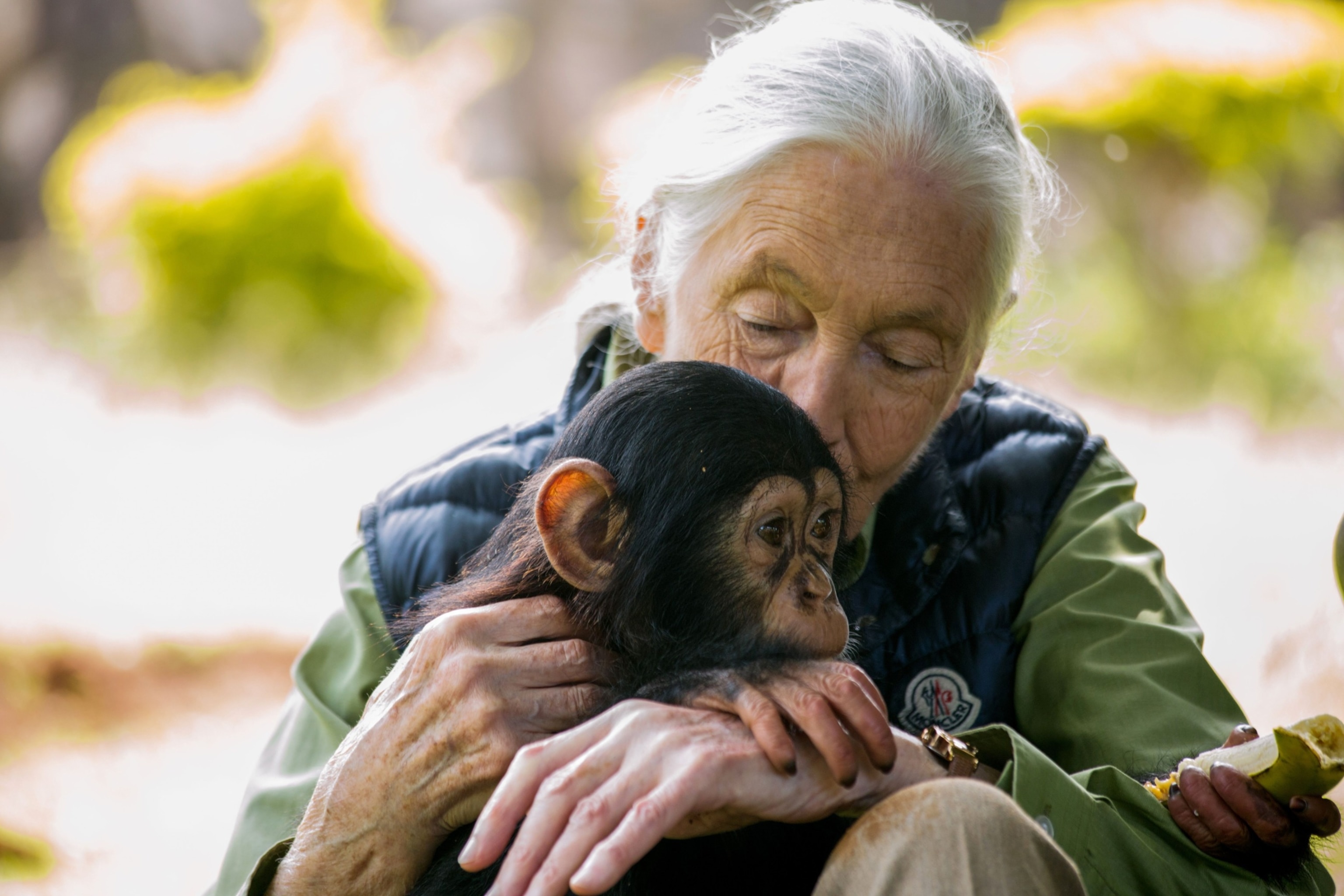
British primatologist Jane Goodall visits a chimpanzee rescue center on June 9, 2018 in Entebbe, Uganda.
Sumy Sadurni/AFP via Getty Images
Goodall’s place in pop culture history was further cemented in 2022 when Mattel announced a special edition Barbie doll dedicated to the conservationist to commemorate the 62nd anniversary of her first visit to Tanzania’s Gombe National Park.
“My entire career, I’ve wanted to help inspire kids to be curious and explore the world around them,” Goodall said in a statement at the time.
The doll is dressed khaki shirt and shorts, a pair of binoculars and holds a notebook. The doll itself is also sustainable, made from ocean-bound plastic.
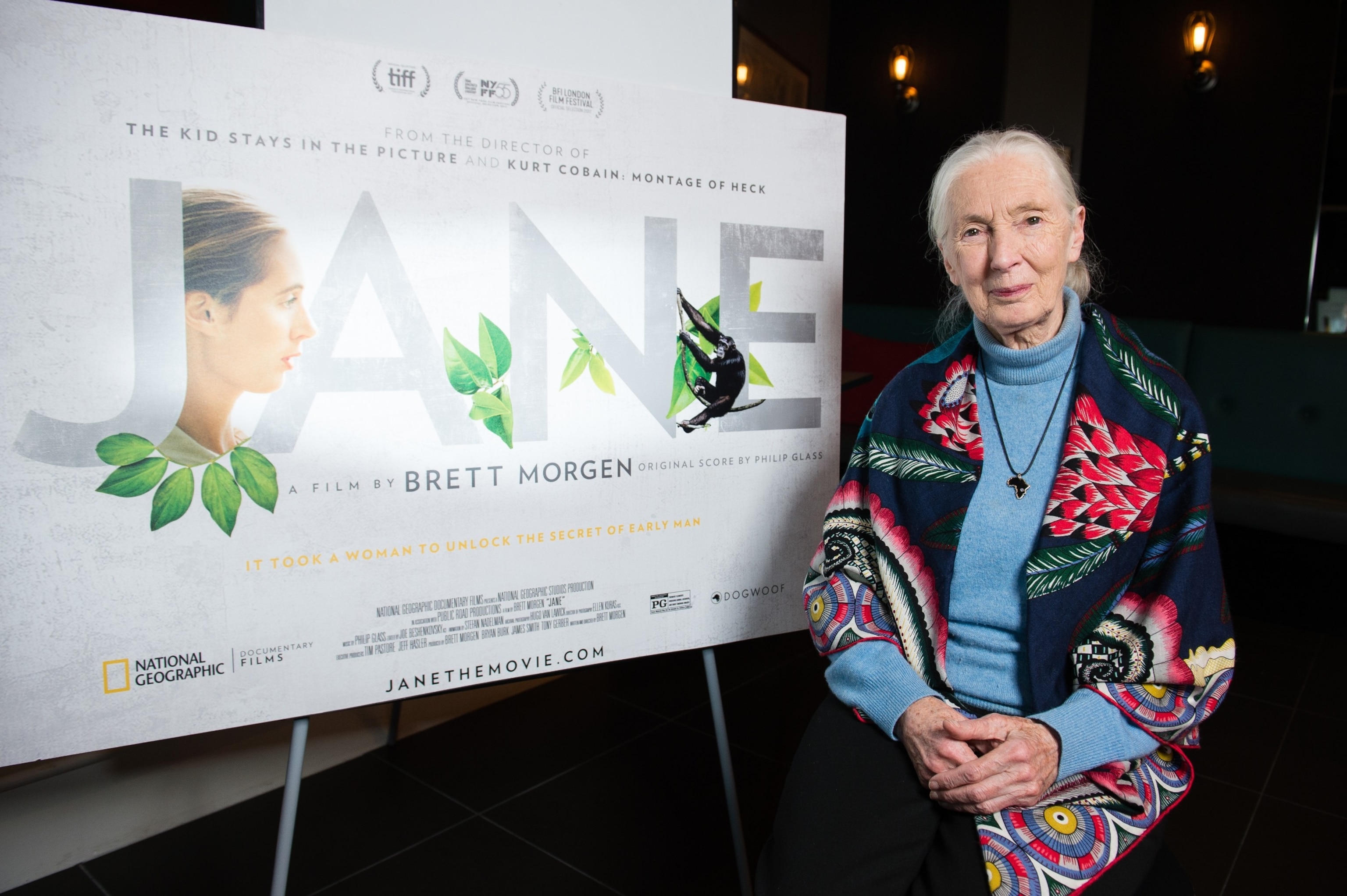
Dr. Jane Goodall attends a special screening of BAFTA nominated National Geographic documentary ‘Jane’ in her hometown at Odeon Bournemouth on Jan. 9, 2018 in Bournemouth, United Kingdom.
Jeff Spicer/Getty Images
The Jane Goodall Institute, founded in 1977, is now the longest-running study of wild chimpanzees.
The organization continues to strive for the preservation of the species’ natural habitat and prevent them from extinction.

